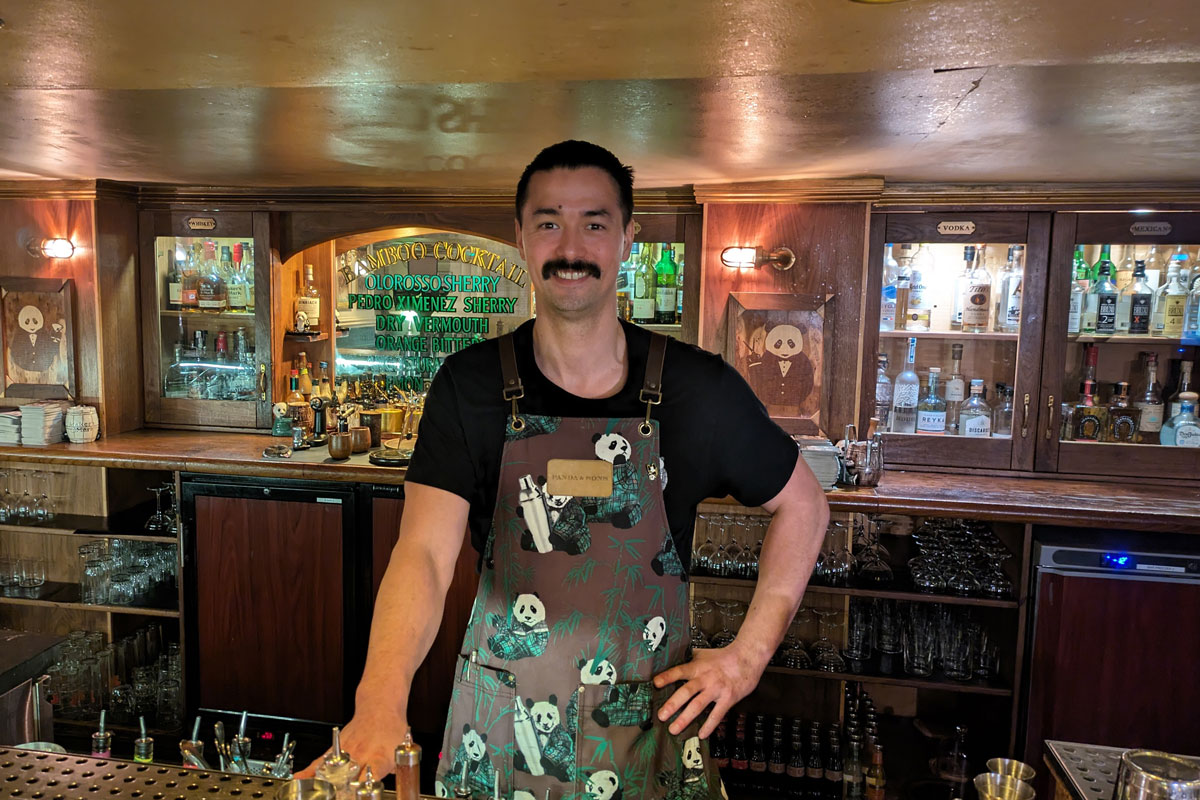
By Dave Hunter
One might be forgiven for thinking cocktails have been a comparatively recent addition to the pages of SLTN, but even in the title’s maiden year we were reporting on new cocktail bars opening and Scottish bartenders competing against rivals from all over the world.
But it’s safe to say the bartenders of 1964 – talented as they no doubt were – weren’t using techniques like ‘sous pression’, ‘switching’ or ‘freeze drying’, because no one was. They hadn’t been invented yet.
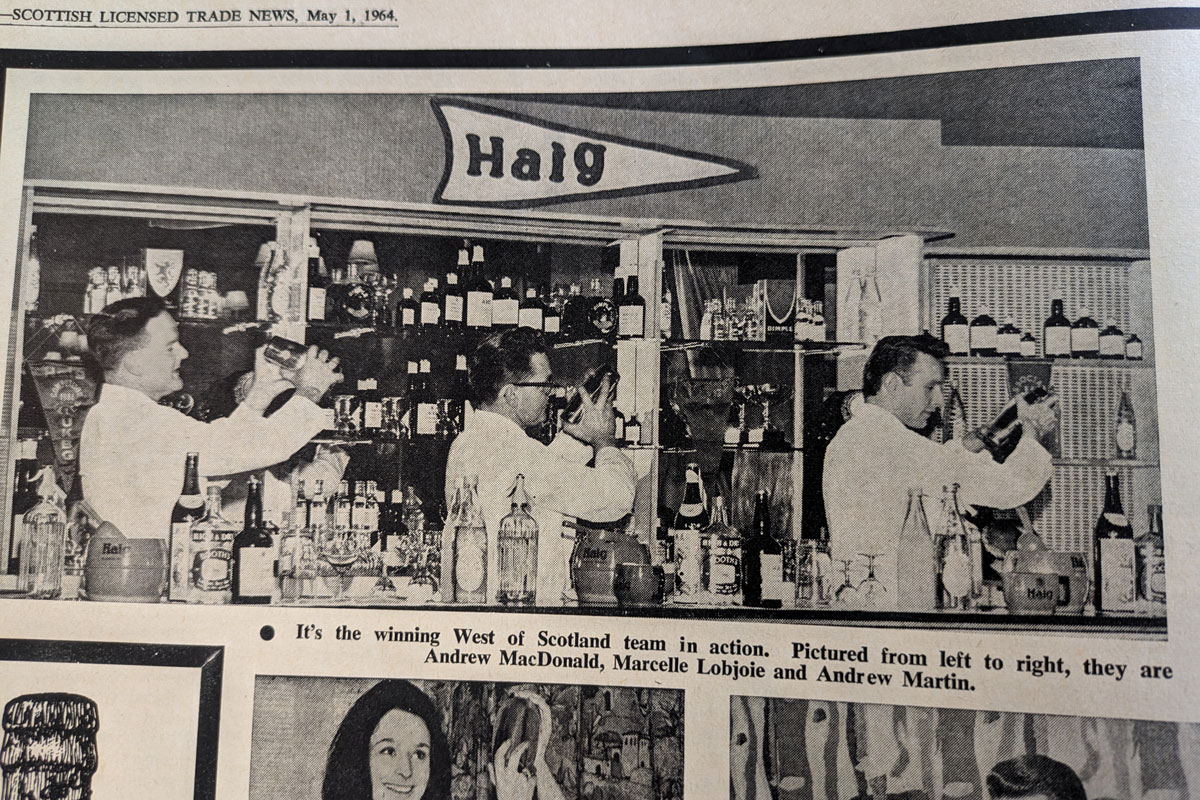
Bartending and mixology have evolved quite a bit since 1964, with Scotland’s bars having established reputations not just at home but across the UK – and even overseas.
Nowhere is this more true than in the case of Edinburgh’s Panda & Sons.
The bar, opened in late 2013 by Iain McPherson, has established itself as one of the world’s top cocktail bars – earning a spot on the World’s 50 Best Bars list (at number 39) last November.
“Over the past decade Iain has become an ambassador for the Scottish bar scene.”
Iain, who also owns Hoot the Redeemer and Nauticus, was already an established bartender when he opened Panda & Sons. But over the past decade he has ascended to become an ambassador for the cocktail scene in Edinburgh and Scotland, hosting talks and guest shifts all over the world.
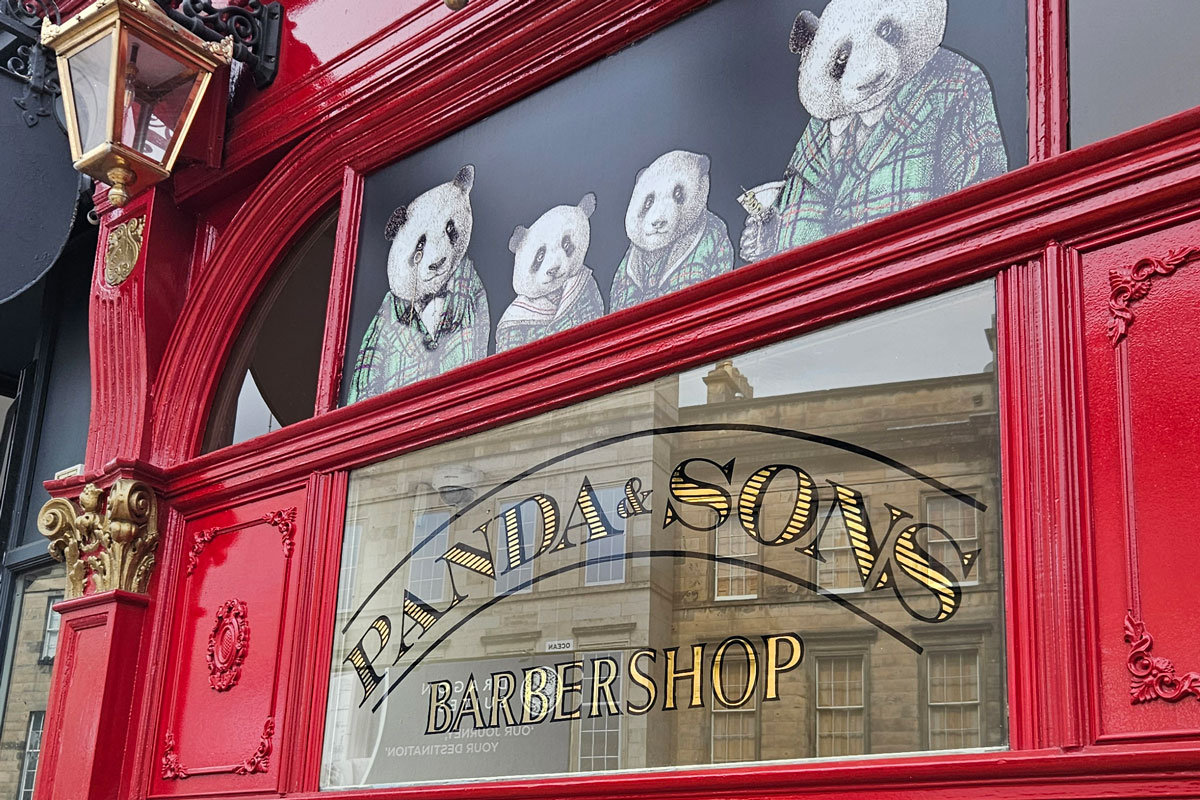
In the past year alone he was named Innovator of the Year by the Class Bar Awards (Panda took Drinks Menu of the Year and Best Bar in Scotland) and was included in the Bar World 100 list.
Those successes have almost certainly been in large part down to Iain’s pioneering cocktail-making techniques, which are featured in Panda’s latest drinks list, Transcend.
The freezing techniques – switching, sous pression, freeze drying and cryo concentration – were developed by Iain over a period of years and are now being adopted by bars around the world.
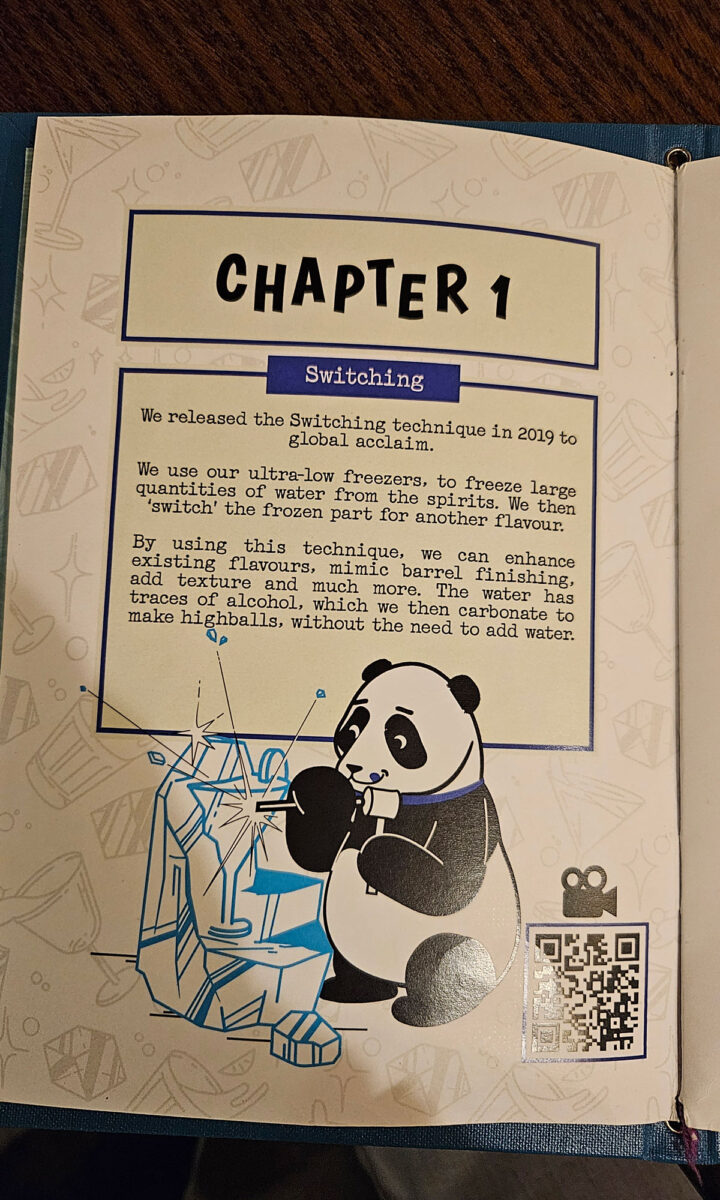
“Switching was our first one in 2018 and that was me just practicing,” Iain told SLTN last month.
“Freeze-concentration is a long-term, old technique, so I was just practicing that. We decided to take freeze concentration one step further and switch it with something else. So we’d take the water out and switch it with a different flavour.
“So then I thought ‘could we do that with spirits?’ We didn’t have freezers that were cold enough and then we found freezers that were cold enough and so then we were able to start freezing water out of spirits.
“Then we set an experiment: can we find a replacement for heat techniques? And that’s where all the other ones came from.”
Sous pression is an alternative to sous vide, using an ultra-low freezer to fuse different ingredients together as a way of combining flavours, while freeze drying is an alternative to dehydration, using cold temperatures to extract moisture from ingredients while maintaining their freshness.
Cryo concentration, meanwhile, involves partially freezing fruit juices so that some of the water content can be removed, mimicking the effects of ripening and increasing the flavour.
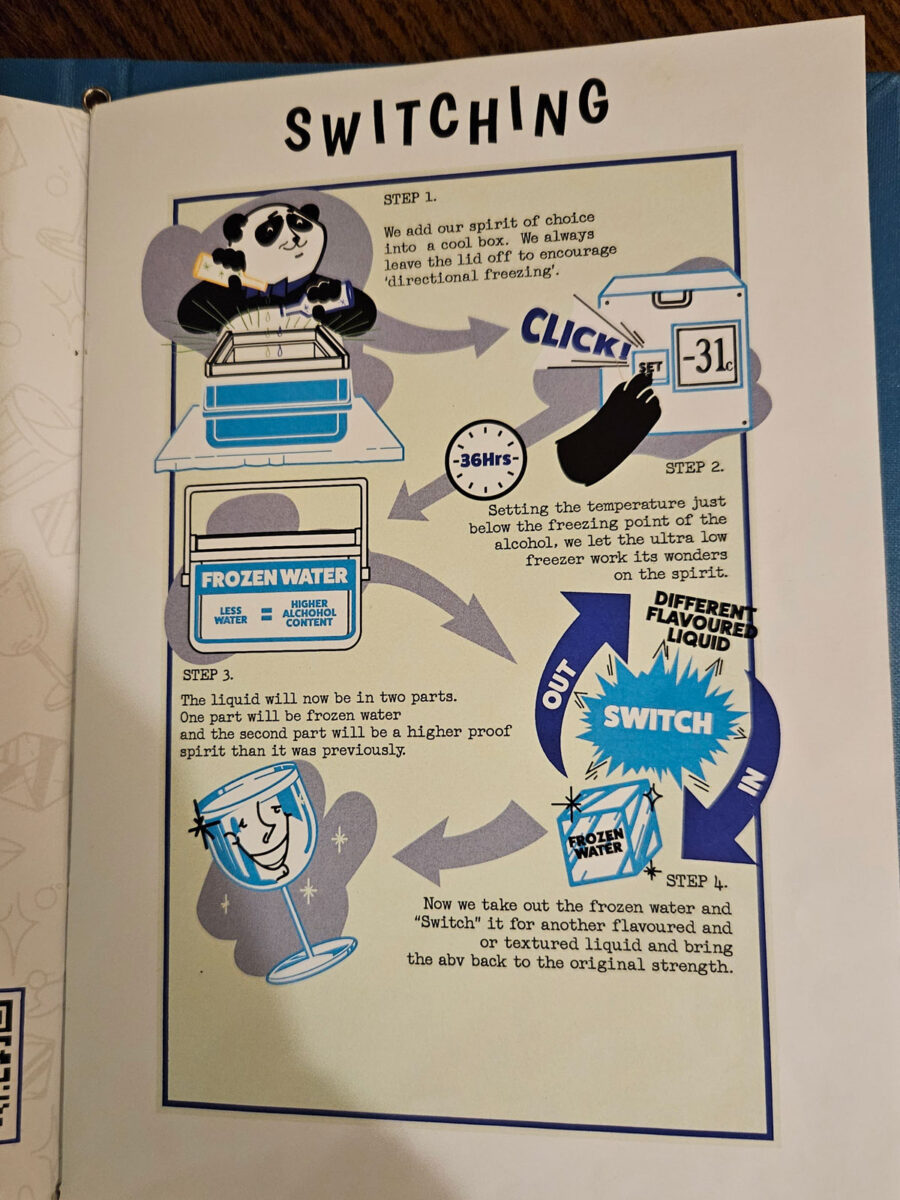
All of these techniques are described using handy illustrations on the Transcend menu, and if customers want to know more there are QR codes directing them to short videos.
“We released sous pression in February last year,” said Iain.
“By the time World’s 50 Best Bars was announced, more than half of those bars were using that technique. In the space of about seven months. That’s pretty cool.”
It’s little surprise, then, that Iain is in such demand. Recent stops have included India, Australia, Scandinavia and Singapore. And that’s just in the past few months.
The goal of these tours, said Iain, is twofold: to spread the word about Panda & Sons and Scottish bartending in general, and to help bars all over the place to embrace new techniques and raise their game.
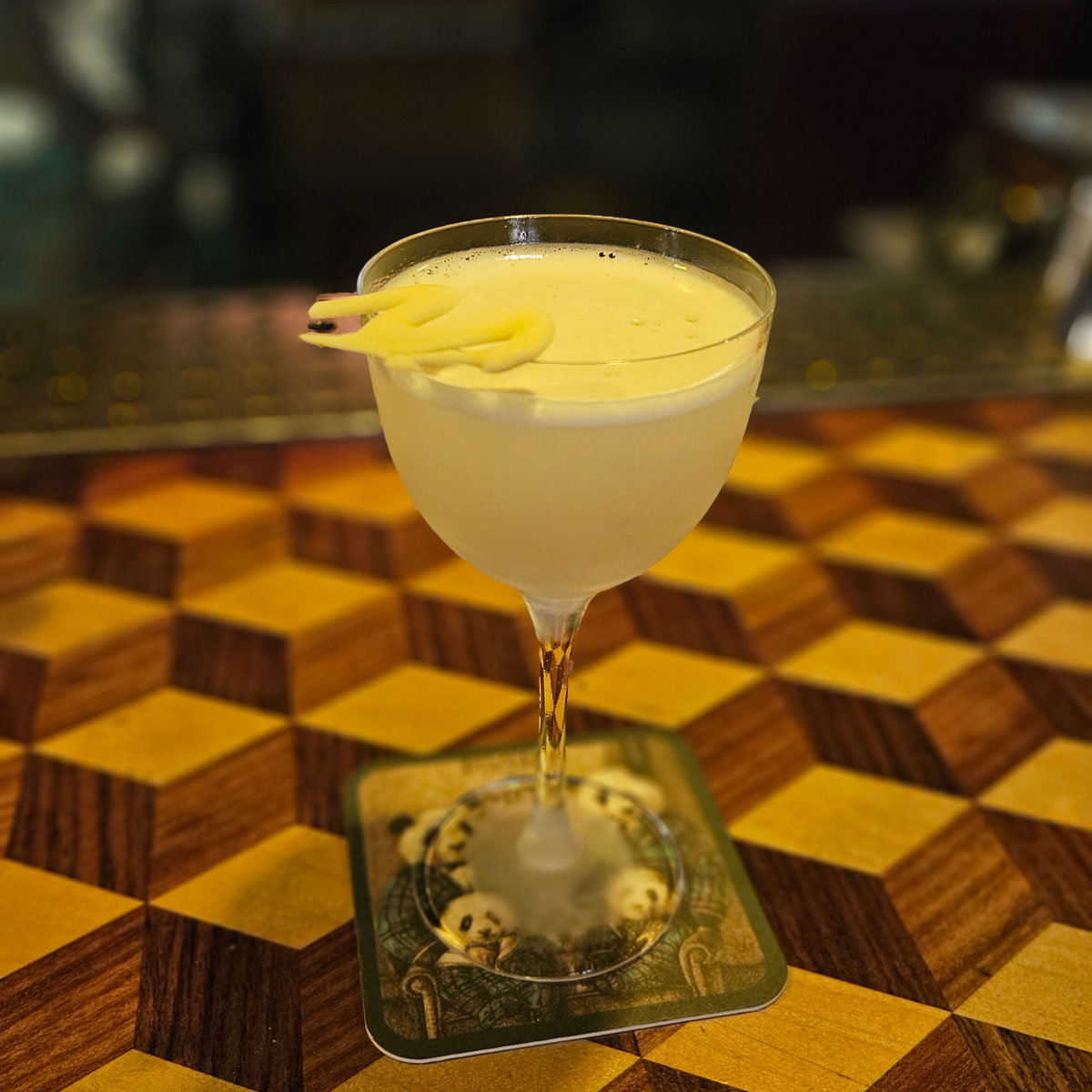
He said: “When I first started doing guest shifts, nearly ten years ago, it was just guest shifts. But I don’t see much return on value for me or the community if I’m just making drinks. I still like to do that, but I like to make sure I’m doing a seminar for the community, to really talk through it and explain the concepts.”
As if developing cutting-edge new techniques and teaching them all over the world wasn’t enough, Iain also helped to organise the first Edinburgh Bar Show this year, welcoming bartenders, speakers and drinks representatives from across the UK.
The show, organised with Edinburgh Cocktail Week creators Jamie Faulds and Gary Anderson, ran over three days in April, incorporating seminars, bar takeovers and tastings. All events were free to attend for people in hospitality.
Iain said the thinking behind the show was to recreate the feeling of community experienced in 2017 when famous American bartending festival Tales of the Cocktail hosted a spin-off event in Edinburgh, Tales on Tour.
“Tales on Tour, back in 2017, was amazing,” said Iain. “It was a very similar format, because they had the education and they had all these guest shifts. It was just a really good way to bring the community together. Everyone was really happy and there was a really nice energy. And I’ve not really felt that since then. So I wanted to bring that back, but on an annual basis.”
Keeping skills sharp and developing new techniques is important, as Iain said customers have become considerably more knowledgeable and adventurous in the time he’s been in the trade.
“There’s something I call the lime cordial scale,” he said.
“When I first started at Voodoo Rooms in 2007/8 we were ordering two cases of 12 bottles of lime cordial. Because obviously there were the long vodkas back then. When I first opened here I was still ordering multiple bottles a week. Now one bottle lasts you about two months. I think that’s the scale of people’s education and actually wanting better drinks.”
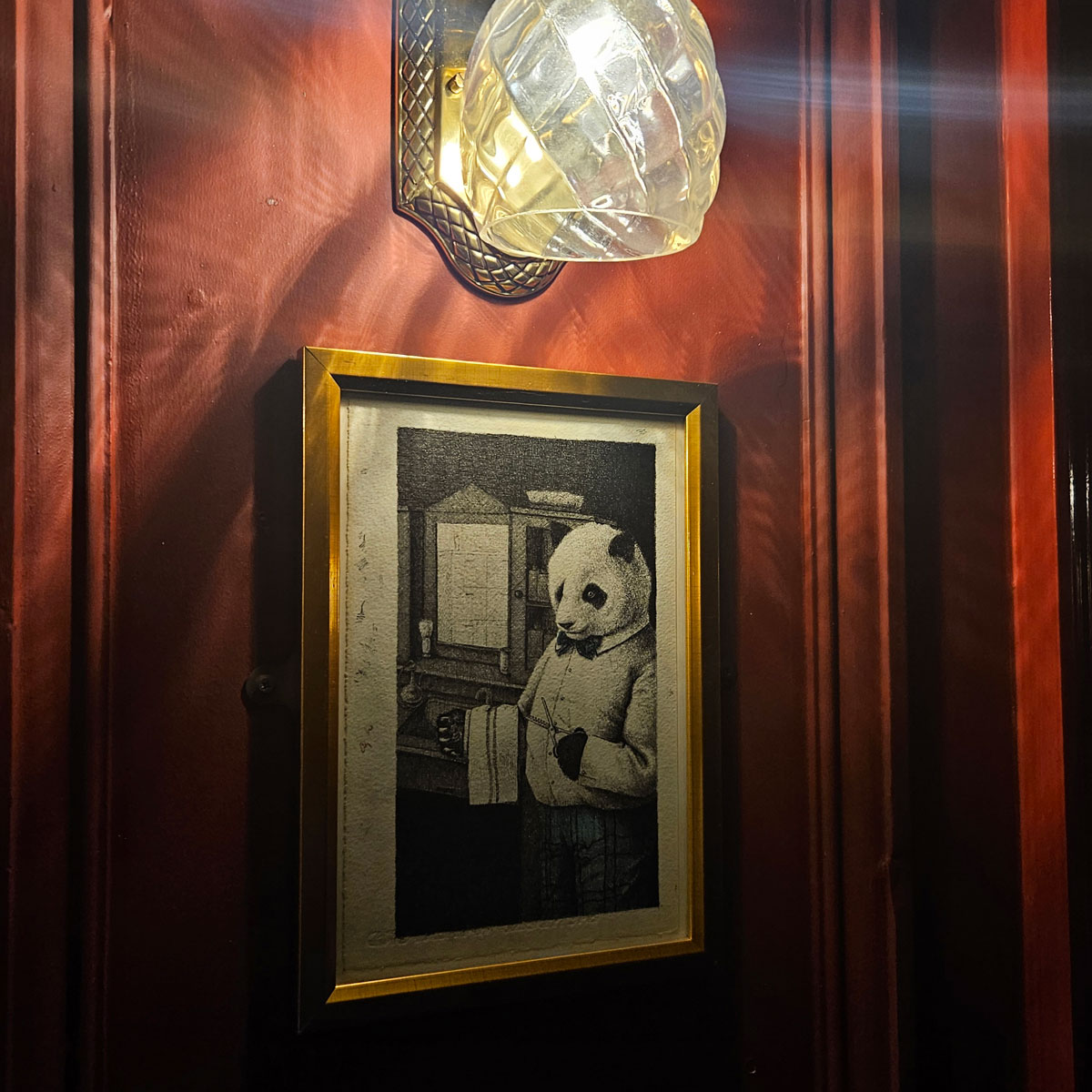
And then, of course, there’s the business of actually running the bars.
While Iain was keen to point out that the three venues have strong management teams – Nicky Craig has been general manager at Panda & Sons for several years, with Cam Chittleborough GM at Hoot the Redeemer and Nauticus co-owner Kyle Jamieson helming that bar – Iain is still very involved in all three bars. And – along with the wider hospitality sector – there’s no shortage of challenges.
“I do miss the days before lockdown, when you walked into your bar and it was busy and it was ‘cool, we’re making money’, but now that’s not the case,” he said.
“I’ve had to literally analyse every cost, which I don’t really enjoy doing. In a weird way it’s forced me to be a better businessman.”
Staffing can be a challenge as well, even for one of the world’s top bars, and so in addition to paying the Real Living Wage, part of the retention strategy has involved creating more roles to give staff members more opportunities to progress.
Iain explained: “When we first opened (Panda) we had that very rigid supervisor, assistant manager, manager (structure). And that was really the ladder. But we realised that we should add extra steps in, because it gives people a bit of a sense of progress.
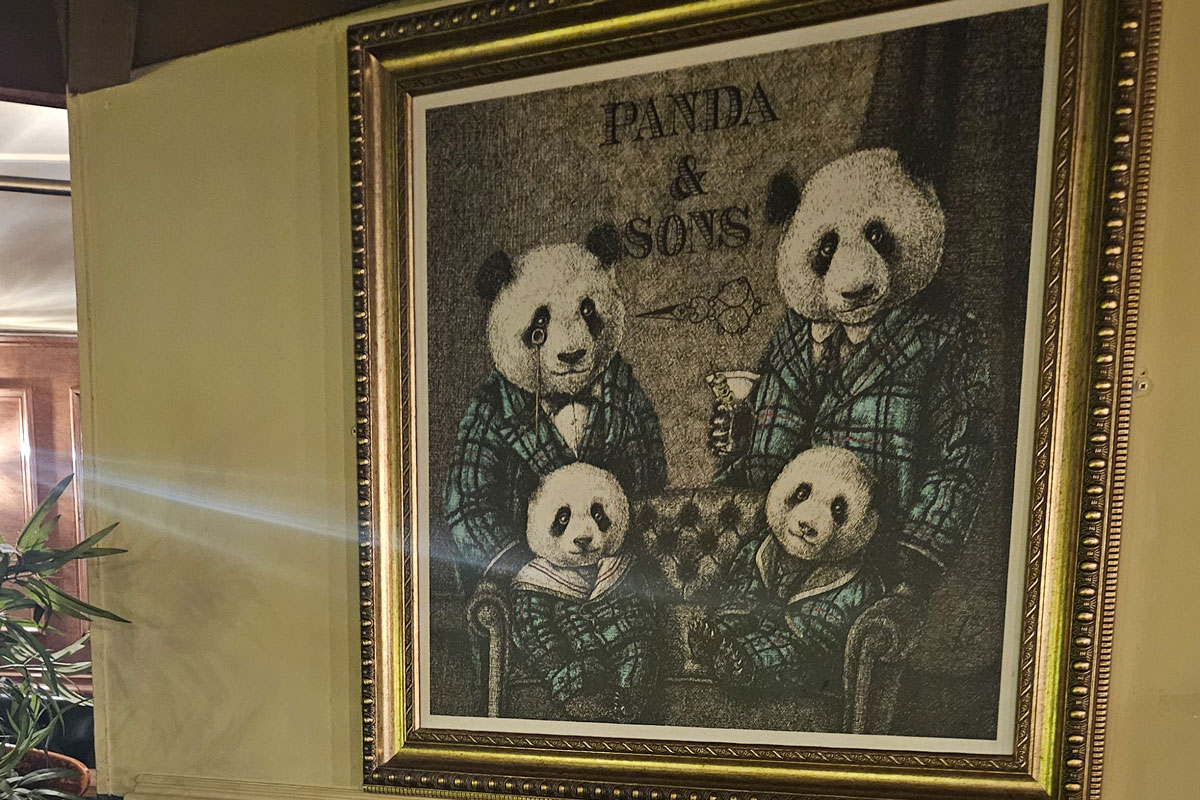
“If you have a good bartender who’s been here a couple of years and there’s not really much room to grow because there’s only like three positions, they will then move on somewhere else to get a senior position.
“So we’ve now got senior bartender, head bartender, duty manager, floor manager, assistant general manager, general manager. We’ve got loads of extra levels. Because there’s more levels there’s always somewhere to move up to. We’ve found that works really well in terms of giving people a sense of progression.”
Despite the challenges, Iain is upbeat about the Scottish bar scene, citing Glasgow bars Absent Ear, Charlie Brown’s and The Gate and Edinburgh’s Hey Palu and Wildcat as examples of great venues in those cities.
“After lockdown you saw a lot of new restaurants opening up and now you’re starting to see more bars opening up,” he said. “And you’re starting to see a new wave of bar owners coming up. It’s good to see that happening.”
We’re sure the dapper barmen of the 1960s would have agreed.
















